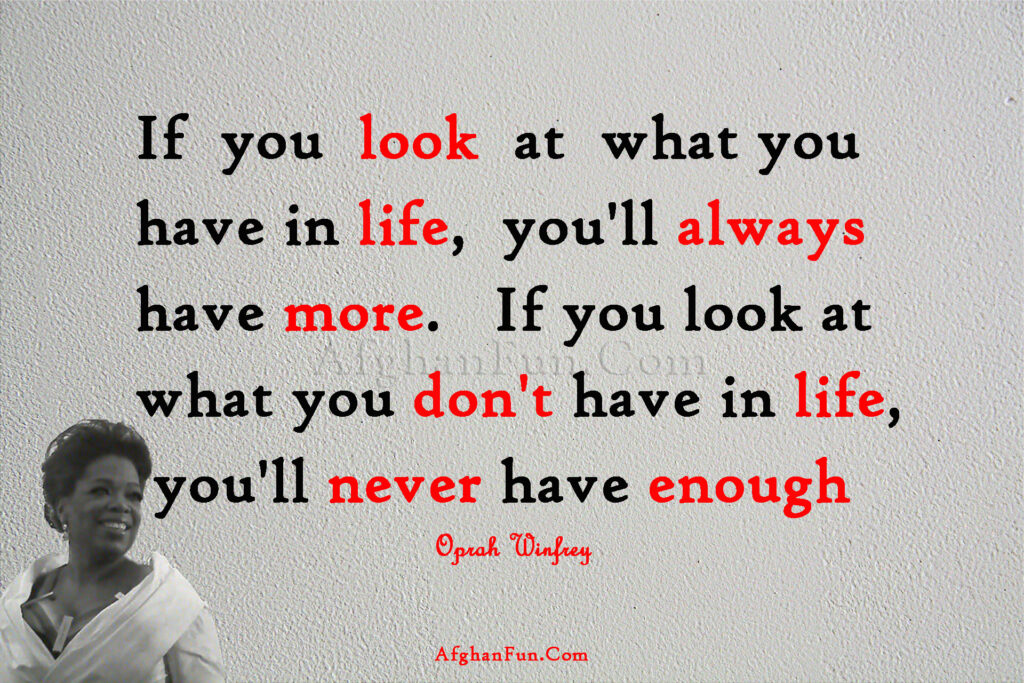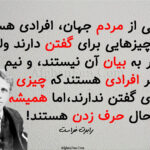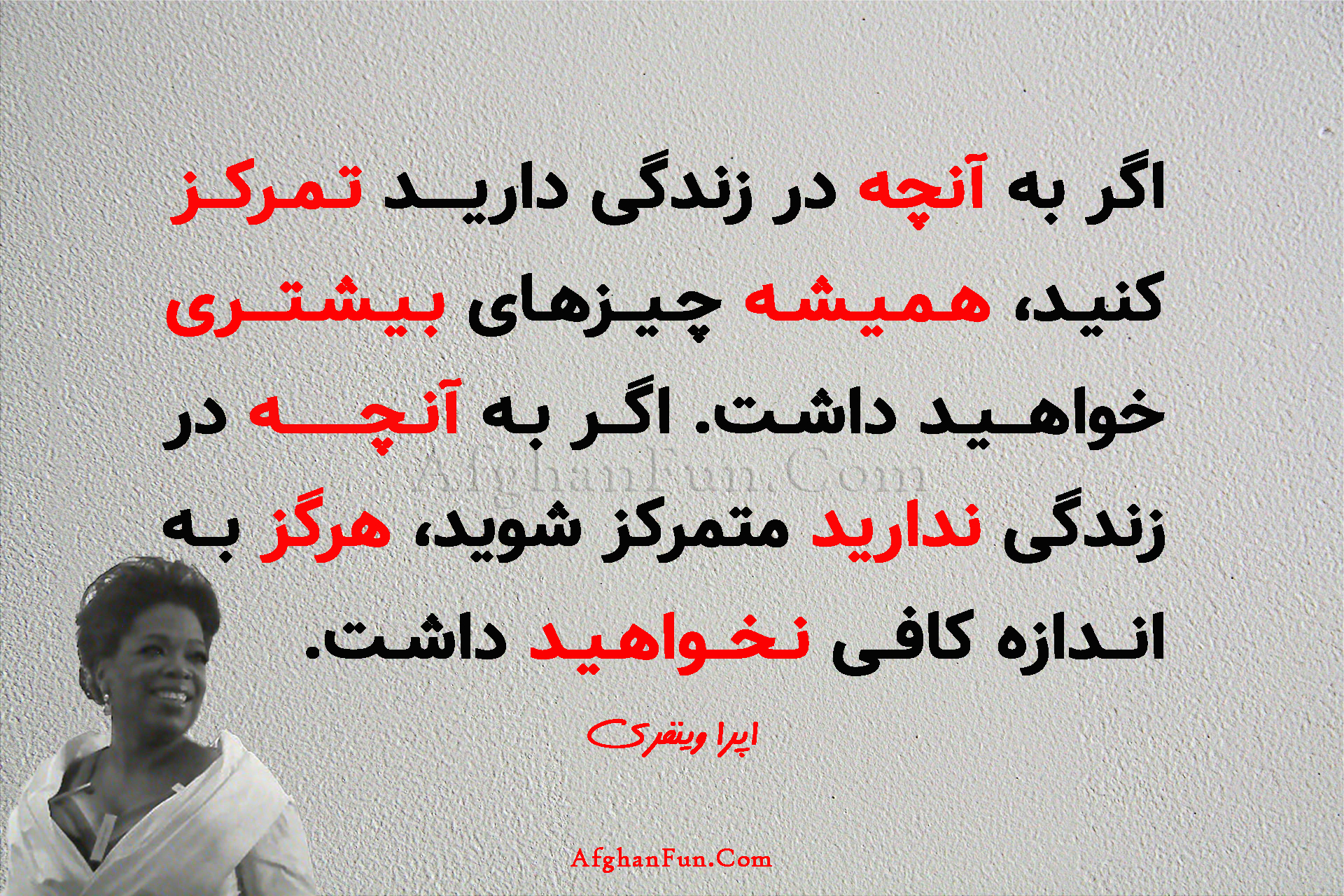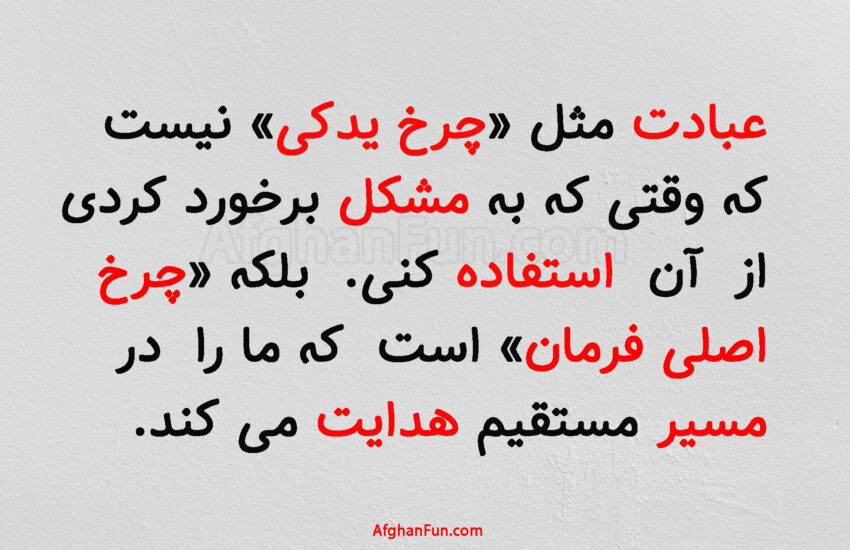
If you look at what you have in life, you’ll always have more. If you look at what you don’t have in life, you’ll never have enough
Oprah Winfrey
اگر به آنچه در زندگی دارید تمرکز کنید، همیشه چیزهای بیشتری خواهید داشت. اگر به آنچه در زندگی ندارید متمرکز شوید، هرگز به اندازه کافی نخواهید داشت.
اپرا وینفری
Агар ба ончӣ дар зиндагии доред тамаркуз кунйд, ҳамеша чизҳои бештарӣ хоҳӣд дошт. Агар ба ончӣ дар зиндагии надоред мутамарказ шавӣд, ҳаргиз ба андоза кофӣ нахоҳед дошт.
Уинфри, Опра
Oprah Gail Winfrey (born Orpah Gail Winfrey January 29, 1954) is an American talk show host, television producer, actress, author, and philanthropist. She is best known for her talk show, The Oprah Winfrey Show, broadcast from Chicago, which was the highest-rated television program of its kind in history and ran in national syndication for 25 years from 1986 to 2011. Dubbed the “Queen of All Media”, she was the richest African American of the 20th century and North America’s first black multi-billionaire, and she has been ranked the greatest black philanthropist in American history. By 2007, she was sometimes ranked as the most influential woman in the world.











